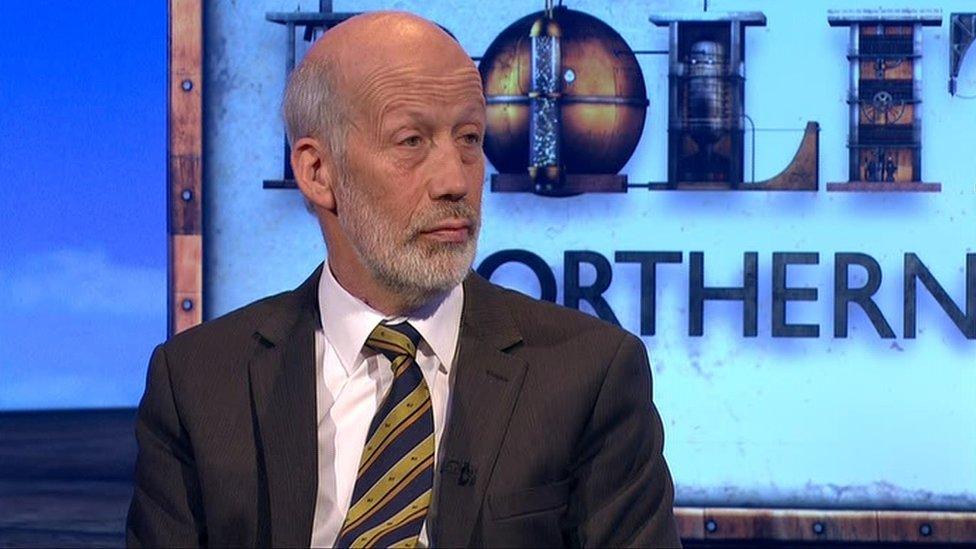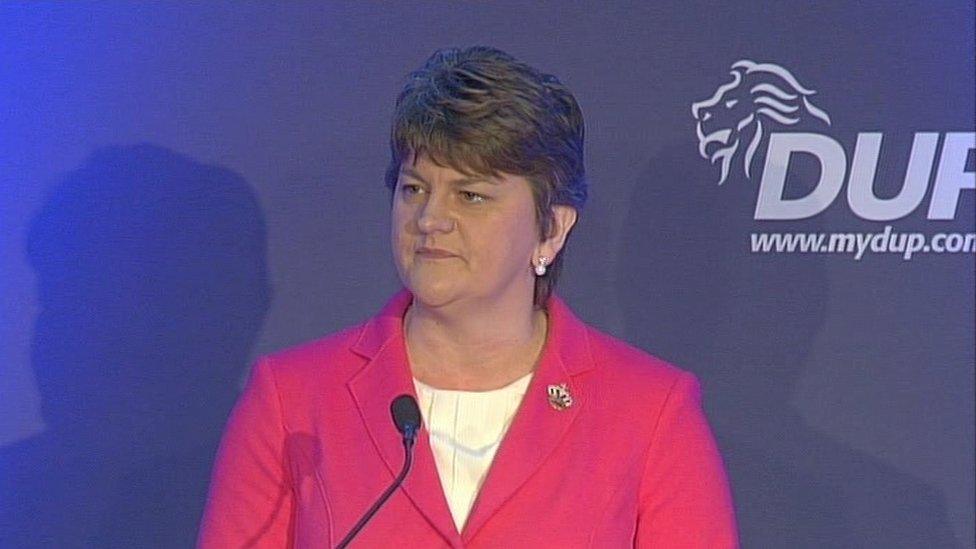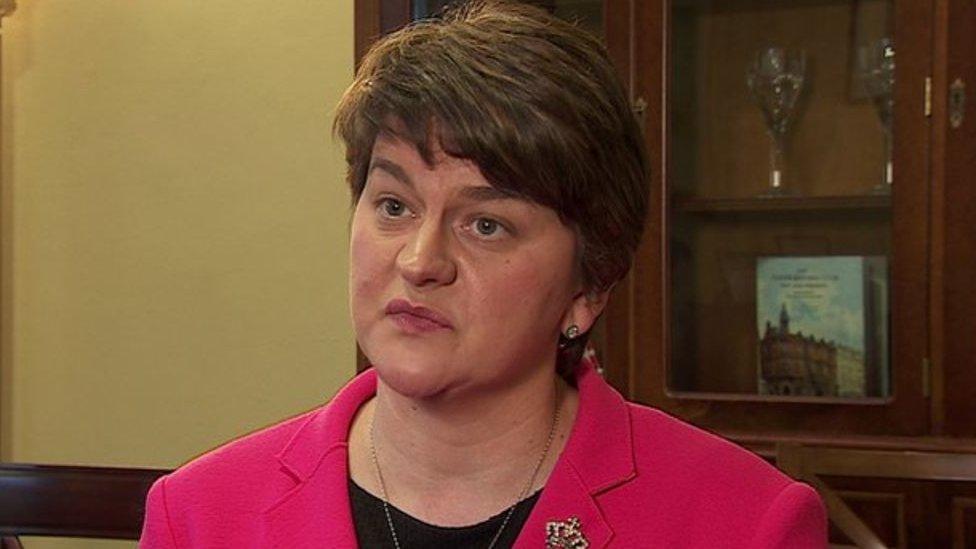1916 Easter Rising: David Ford declines to attend commemoration of 'violence'
- Published

David Ford said he would not attend any "celebration" of an armed insurrection, or one that did not fully examine the "totality of suffering" caused by the Easter Rising
Northern Ireland's justice minister has declined an invitation from the Irish government to attend an event to mark the 1916 Easter Rising centenary.
David Ford said he was "uncomfortable" about the state "marking the efforts of those who engaged in violence".
He said dissident republicans who murdered policemen and prison officers in recent years would claim to be the "inheritors" of the 1916 rebels.
The rebellion against British rule will be commemorated in Dublin next week.
'Suffering'
Speaking to the BBC's Sunday Politics programme, Mr Ford said he had written to the Irish Prime Minister (Taoiseach) Enda Kenny to explain his reasons for declining the invitation to the government-organised event.
"My problem is - the people who murdered Adrian Ismay, the people who murdered David Black, the people who murdered Ronan Kerr, the people who murdered two Garda (Irish police) officers, would all claim to be the direct inheritors of Easter 1916.
"I cannot associate myself with that, as minister of justice."
Mr Ford said he understood why the historical event was being reflected on 100 years later, but added that he would not attend any "celebration" of an armed insurrection, or one that did not fully examine the "totality of suffering".
The Dublin rebellion, which began on Easter Monday, 24 April 1916. resulted in the deaths of 485 people, just over half of them civilians.
The rising was crushed with a week by British troops, but despite its military failure it is seen as a significant step in the creation of the Republic of Ireland as an independent state.
'Undemocratic'
However, Mr Ford said there were other means of achieving independence.
The Home Rule movement was supported by most Irish nationalists, before the British began to execute the leaders of the Easter Rising.
"There is a real difficulty if the state is putting a very significant part of its effort into marking the efforts of those who engaged in violence, when there was a democratic way available," he said.
The justice minister also said he agreed with the assessment of Northern Ireland's Attorney General John Larkin, who has described the Easter Rising as "profoundly wrong" and lacking in "any democratic or constitutional legitimacy".
"Until the point when the British general ordered executions, I think all the evidence was that it was regarded as undemocratic by the great majority of Irish people, whatever part of the island they came from, whether they were nationalists or unionists," Mr Ford said.
The minister said he plans to attend other events that mark the centenary of the rising in a more reflective way.
- Published15 February 2016

- Published10 January 2016
